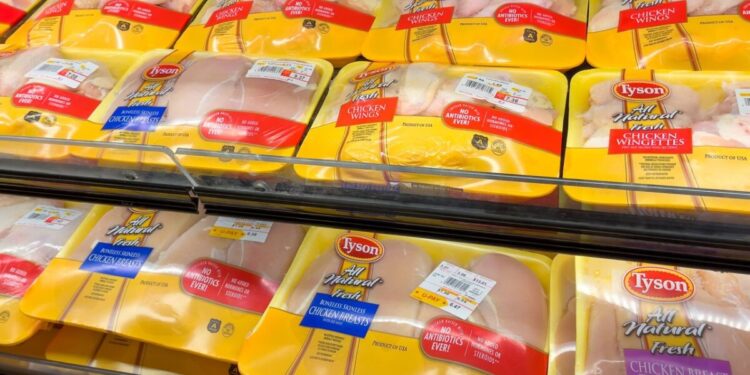KH News Desk (cbdigital@imaws.org)
Tyson, the largest poultry producer in the U.S., has made a significant decision to distance itself from being fully antibiotic-free in its poultry products. The company stated that this decision was made with the best interests of both people and animals in mind, based on evolving scientific understanding and best practices. Tyson’s move aligns with the “no antibiotics important to human medicine” label recognized by the USDA and the World Health Organization, which permits the use of antibiotics not critical to human disease treatment.
In 2017, Tyson initially announced its intention to eliminate antibiotics from its poultry products under pressure from consumer groups. At the time, the company stated that it would replace antibiotics with probiotics in chicken production. However, rival companies like Perdue emphasized branding their chicken as antibiotic-free, while Pilgrim’s Pride mentioned using antibiotics as a course of action against disease if recommended by a veterinarian, despite maintaining antibiotic-free hatcheries since 2016.
Tyson’s decision may indicate a broader industry effort among poultry producers to prevent disease, particularly in the wake of the significant impact of the 2022 bird flu outbreak. While the Biden administration is exploring vaccination as an option, broiler chicken producers are generally opposed to it, as it could restrict their sales in regions with stricter regulations than the U.S.
The use of antibiotics in food production has faced criticism from consumer groups and public health activists due to the development of antibiotic-resistant bacteria. A recent study published in the medical journal Infection and Drug Resistance revealed that antibiotic use in poultry farms contributes to increased bacterial resistance in the soil.
Industry trade groups have defended the use of antibiotics in chicken production, arguing that it is necessary to prevent disease. The National Chicken Council, for instance, highlights that several antibiotics are approved by the FDA and USDA for use in poultry while emphasizing the requirement for antibiotics to be cleared from the animals’ systems before sale.
Health and animal welfare advocates argue that the industry prioritizes profits over the health of animals and consumers. The Humane League, in a blog post, expressed concerns that antibiotics prompt unnatural growth in chickens and pose serious threats to human health, particularly for immunocompromised individuals.







